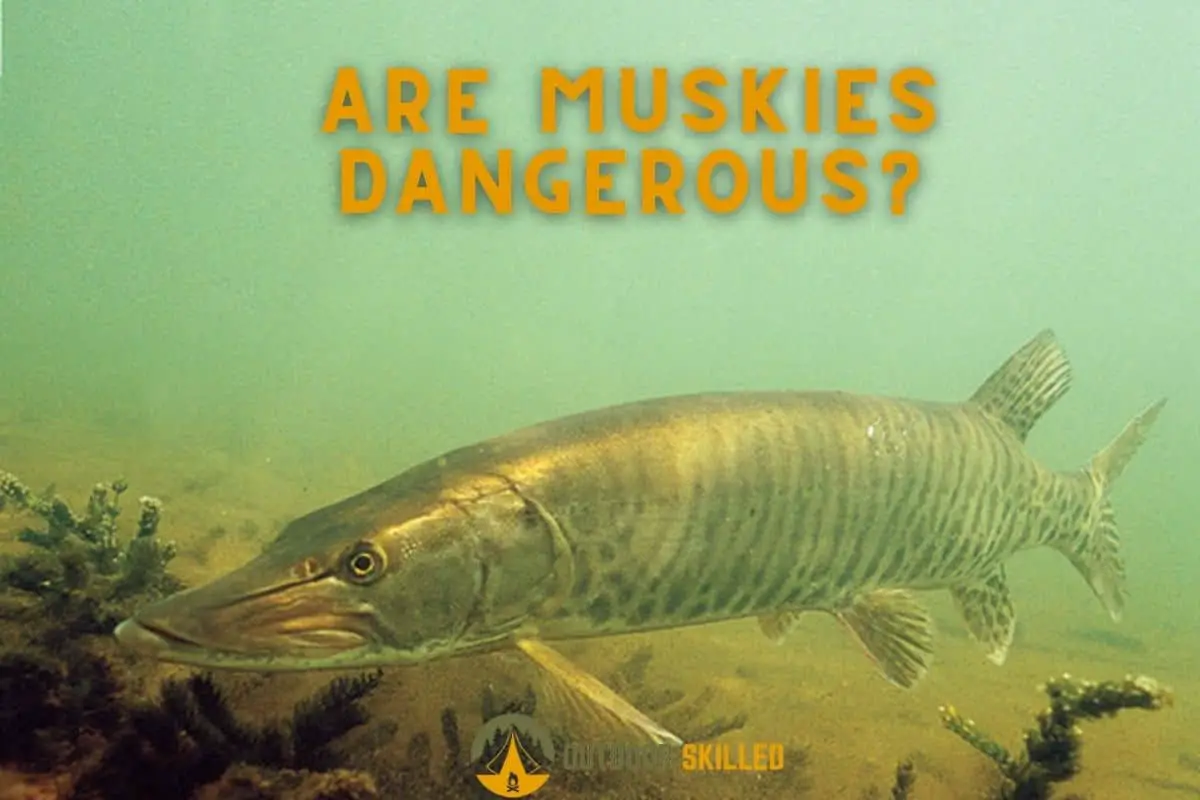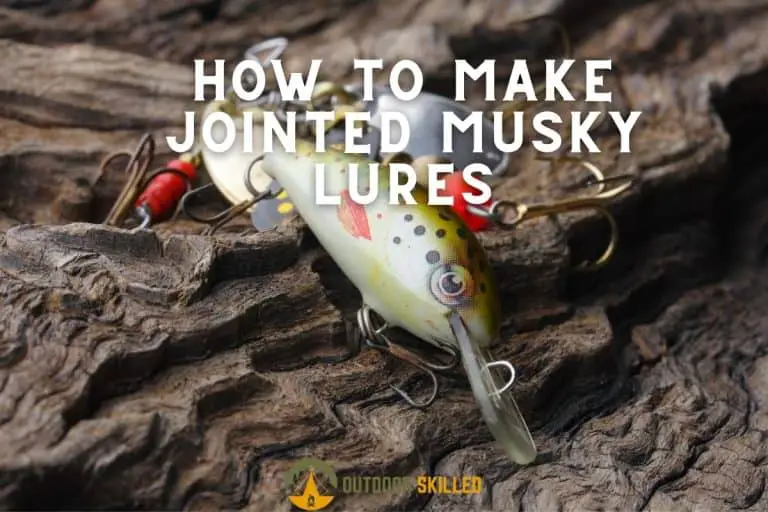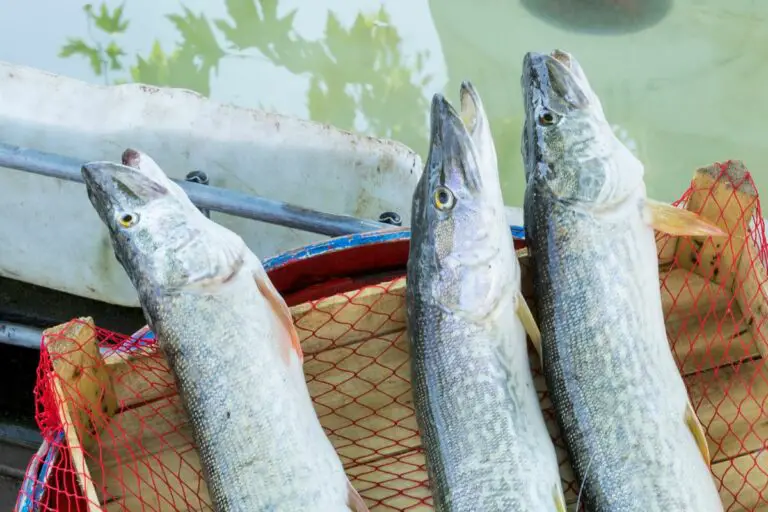Are Muskies Dangerous? When Should You Worry (and What To Do)
There are lots of examples of how muskies can be dangerous to fishermen or the people swimming in a lake that has a muskie population. But some stories can be exaggerated enough to make people nervous, are muskies really that dangerous to a level that you should worry about?
Are muskies dangerous? Yes, muskies are dangerous to an extent, but swimmers and fishermen shouldn’t be worried about it. Muskies are predatory big fish, they attack with powerful bodies and a mouth full of sharp teeth. However, people shouldn’t be worried as the Muskie attacks aren’t based on feeding purposes.
Keep reading to know the truth about the danger of muskies, are they that dangerous to humans or it’s a myth?
Table of Contents
Are Muskies Dangerous?

Muskies are natural predators, they’re born to hunt most of their time which makes them dangerous to some extent. Some people call it “The barracuda of freshwater” but that doesn’t necessarily mean they will impose huge danger on you all the time.
Muskies are big fish that can grow as long as 6 feet (1.8 meters) long, while possibly weighing more than 50 pounds (about 22.5 KG) with strong muscles that allow them to be fast and vicious. However, they won’t attack you unless you give them a reason to.
Should you be worried about Muskie Attacks?
In general, no you shouldn’t be worried about muskie attacks because it’s a rare occurrence after all. However, you should know all about the causes and effects of it to avoid it happening.
Muskies only attack in certain situations; if you’re dangling your hand into the water, the movement will entice them to attack it. Also, if you’re wearing shiny jewelry like a bracelet or an anklet, they might mistake them for lures they can catch.
It’s good to know that muskies won’t attack anything bigger than ⅓ of their body length. So if you’re peacefully swimming in a lake that has a muskie population, you’re in no danger if you’re not wearing any eye-catching pieces.
Muskies won’t attack you to feed on you and cut your hand or feet, they may mistake them for lures they can swallow. One specific case we’ve found is that a Tiger Muskie once attacked a person who was wearing a bright, shiny ankle bracelet.
I’ve discussed Muskie attacks in a lot more detail in my post on why are muskie aggressive here, including the two famous Muskie attacks on girls from a few years back.
So, no, you shouldn’t be worried about Muskie attacks. However, Muskies can put up a good fight, so I recommend checking out my recommended Muskie Reels here as these can indeed give you a much better chance of bringing even trophy muskies safely home.
You can also check out these excellent braided fishing lines which I have been more than happy with and I think you will be just as happy with as well.
How Bad is a Muskie Bite?
A muskie can have between 500-to-700 teeth in its big mouth. They have both bigger canines razor-sharp and smaller needle-like teeth. Their teeth can grow up to 1 inch (2.5 cm) in length which can cause wounds of different levels. It can cause some scrapes on your skin, or it can go deeper and cause cuts that need stitches. It looks something like this:

The bite may also get infected, muskie eats a wide range of prey, it is also likely their mouth will contain various bacteria capable of causing an infection but this is not exclusive to the pike bite as any bite can get infected and cause other complications if not handled right.
Muskies use their sharp teeth to grab, puncture and kill their prey. The bigger teeth are tightly positioned along its lower jawline and work as the main hunting tool that they use to grab their prey. While the smaller rows of teeth are angled inward to do the job of getting a good grip of prey and prevent it from escaping.

Tips to Avoid Getting Bitten by a Muskie
Whether you’re an angler that has muskie on your bucket list or you’re just a person planning to go for a dip in the lake without worrying about getting bitten, here are some precautions to consider:
- Don’t leave your hands or feet dangling near the water surface, especially when you have nail polish on. Colors entice muskie to strike mistaking it for lures.
- Avoid wearing shiny accessories. Muskies can be triggered to strike by any flashy jewelry paired with rapid movement.
- Don’t get too close to their mouth after being caught.
- Keep your boat stable. The aggressiveness of muskies on an unstable boat can maximize potential risks.
- Always be ready with a good quality musky net to ensure a safe and secure hold of the muskie. It helps you keep the muskie underwater during measurement to decrease their aggressive behavior resulting from stressing out.
- Be ready with rubber gloves to hold a muskie after you catch it. It protects your hand from their sharp teeth.
- Use release tools like long-nosed pliers to help to remove the hook safely without exposing your fingers to their teeth.
- Hold a muskie horizontally not vertically after you catch them. Holding them vertically can damage their gills and maximize their stress, hence, more aggressive actions.
- Hold a muskie with both hands horizontally to safely release your muskie back into the water.
How to First Aid a Muskie Bite
Muskie’s sharp teeth can cause tearing to your skin, some of them can be deep and others can be superficial. Either way, it’s nothing to freak out about and it can be easily treated.
It’s better to go straight to the emergency room and let your health provider observe the injury closely and decide whether you need stitches or not. But if you want to do it yourself not to get infected until you get there, it’s simple.
Before you let someone near your injury make sure they wash their hands with soap and water. Don’t touch the wound and make sure all dressing is sterile, then follow this simple guide:
- Spray the bitten area with clean water.
- Add one-quarter teaspoon of salt to 200 ml (1 cup) of clean water.
- Pour water over the wound to kill any germs.
- Use a clean cloth to apply direct pressure to the wound to stop any bleeding.
Warning: if you possibly observed some teeth stuck in the injury, leave them in place until your healthcare provider can remove them without harming your muscles or tissues.
Related Questions
Are Muskies a threat to fishermen?
Yes, muskie may be a threat to fishermen if not handled right. Muskies can bite fishermen’s hands or fingers with razor-sharp teeth when they’re unhooking them, especially if they’re not wearing rubber gloves or using long pliers to remove the hook.
Did a Muskie Attack a Dog?
There have been stories about a muskie attacking a dog in shallow waters in one of Wisconsin lakes, nothing is confirmed. A woman claimed that she took her dog to the lake and while they were a few inches into the water, a muskie suddenly appeared and tried to grab her dog. Custody of the narrator.








